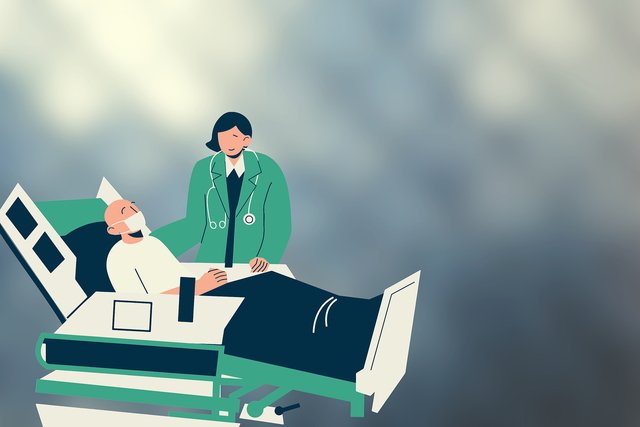When someone dies, we usually think it's when their heart stops beating, and their body shuts down. But it turns out, there's more to it than that. Even after the heart stops, the brain keeps ticking for over 10 minutes. In fact, it might be the last part of your body to go. Just before the final moment, the brain gets a jolt of electricity. No one knows why. It also starts running low on oxygen, which can then make you see things like a light at the end of a tunnel (it's something people often report in near-death experiences). Even when you're not breathing and your heart isn't beating, you're still very conscious for about 2-20 seconds. That's because the thinking part of your brain, called the cerebral cortex, can survive without oxygen for a short time. It's in charge of thinking and making decisions, but it loses its power over your muscles. At this point, the brain is on its last legs. Brain cells start shutting down, and here, the only thing that can likely save you is a burst of oxygen. If someone gives you CPR or uses life support to jumpstart your heart, your brain might get enough oxygen to wake up again. But if there's no oxygen, your brain starts to give up. Most of your brain is now gone, except for one special place, which is called the "memory center". It holds all your emotional memories and is super tough, even during injuries. It's the last thing to switch off, and before it does, it replays moments from your life. In some cases, when doctors turned off life support for people declared clinically dead, the brain seemed active for more than 10 minutes.** And when they checked brain recordings, they found big differences between individuals. This could suggests that everyone might have a unique experience when they die. Even two days after death, over 1,000 genes in the body are still working. Some are busy fighting inflammation and boosting the immune system, while others that normally only switch on during development start up. It's actually a mystery why this happens and why some genes promote cancer growth after death. All these discoveries has make us question what we really know about death. Is it right to say someone is dead when parts of them are still active and working? What does this mean for organ donations and autopsies? I do love you to contribute to this write up...
Thanks for reading as well
Authors get paid when people like you upvote their post.
If you enjoyed what you read here, create your account today and start earning FREE STEEM!
If you enjoyed what you read here, create your account today and start earning FREE STEEM!

Team Steem Peacocks 🦚
Congratulations! Your post has been upvoted through steemcurator07.Downvoting a post can decrease pending rewards and make it less visible. Common reasons:
Submit